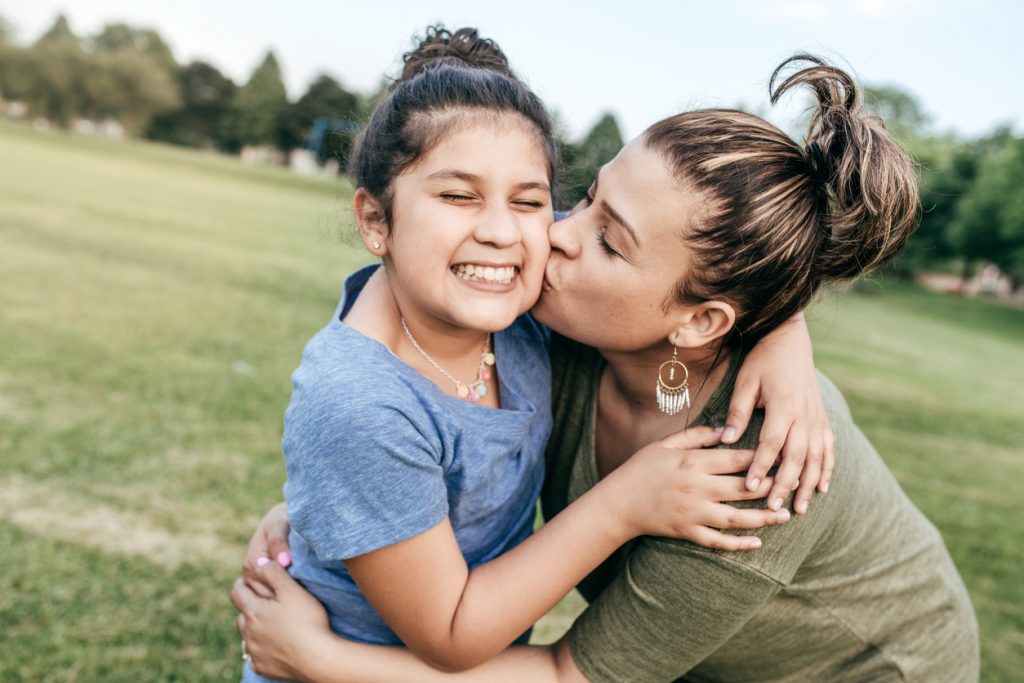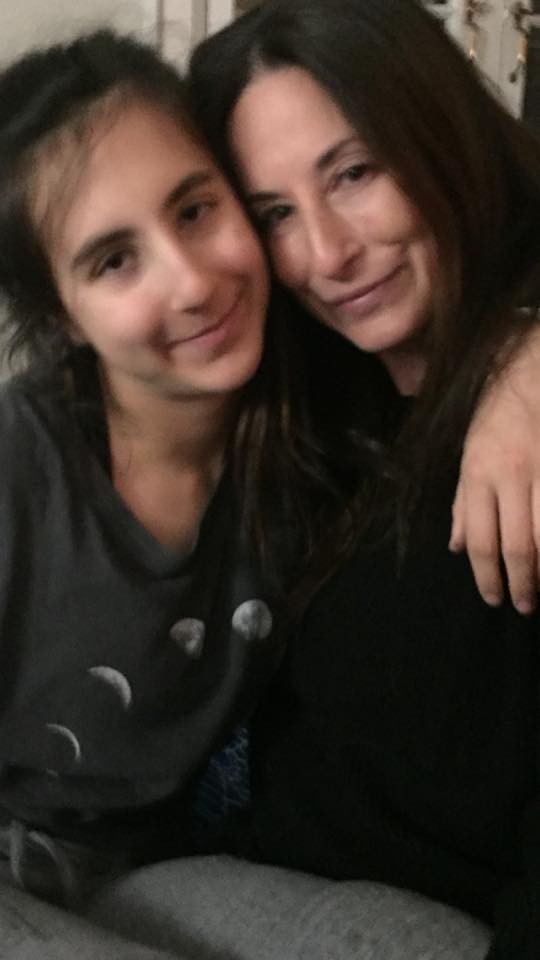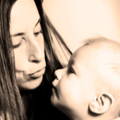Why Parents Can Benefit From Being Friends With Their Children

I don’t care how cheesy, silly or unbelievable it may sound, but, yes, I consider my 14 year-old daughter a friend and I treat her as such. No longer is being “friends” with your child necessarily seen to be a negative or seen as poor parenting.
Treating my daughter like a friend over the years has only benefited and solidified our close relationship. Often, when I pick her up from school, I’ll say, ‘You’ll never guess what I heard today…but you have to promise you can’t tell anybody.’ Some of the gossip I tell her, I don’t even tell my own adult friends. My daughter will tell me which girls in her grade drink, have boyfriends and who hangs out with whom, like my adult girlfriends do.
When my daughter is in a fight with a friend, she’ll ask for my help to create the perfect text to get their relationship back on track, just like my adult girlfriends often ask me to do as well. At night, if my daughter is downstairs watching YouTube stars, I will text her from my bedroom, ‘You want to watch a show together? Come to my room!’ She’ll text, ‘YES!! Be right up!’ (I don’t mind texting my child, even if we’re in the same house. I actually like it, because I don’t have to scream downstairs…or move.)
Just because I treat her like a friend, doesn’t mean I don’t also parent. My daughter does not like the fact that I insist on randomly checking her phone and always knowing her passcode. She doesn’t like these random checks, because, as she has told me, ‘Well, you say that you trust me and you want me to tell you things. And I tell you everything, so you don’t need to check my texts.’
To which I respond, ‘Too bad. It’s still going to happen.’ So, you can balance being a friend and a parent.
Still, I admit I was mortified (but also laughing) during my last random check on her phone, where I saw that my daughter had taken a screenshot of one of our conversations. It went like this…
Me: ’I know it’s only 2 p.m. but I’m right around the corner from your school. Can you get out early?’
Rowan: ‘No, I can’t.’
Me: ‘Come on! Just bail! Let’s go get something to eat. Make up an excuse and get out of there!’
Rowan: ‘I can’t. I’ll see you at home. I love you.’
Let me be clear. This has nothing to do with being a ‘cool’ mom. I will never be that mom who buys her underage kid alcohol. I expect good grades. I expect apologies when necessary. I expect her to be respectful. I expect her to clean up her dishes, walk the dog, do her homework, be ready to go in the morning, and help out with chores. If I drop her off and she forgets to bring something to school, I will not go back home and get it for her. I tell her, ‘You have to figure it out. Sorry.’

Me and my friend/daughter, Rowan
So many of my mother friends complain that their children don’t talk to them, or complain how their children talk back to them, slam their bedroom doors, or basically ignore them. I wonder if it’s because they haven’t found the balance between being their child’s parent, while also being their friend. Looking back, my daughter and I formed a friendship when she was five. I had parented her for years, basically alone, changing diapers, feeding her, putting her to bed, taking her to school—all very parenting things. But, at five years-old, my daughter also watched the first Sex and the City movie with me when it premiered…and she loved it, insisting we watch it over and over again.
Of course, not everyone agrees that treating your child like a peer is a good thing. According to this article, social worker Janet Lehman explains that, ‘Being a friend is much easier and more comfortable than being a parent, after all—at least at first. But understand that if it continues, it creates severe problems down the road, because it becomes very confusing for them. It creates poor boundaries and makes it hard for your child to relate appropriately to other adults.’ Wow. Also, blah, blah, and blah.
If you’ve ever met my daughter in person, you’d be blown away by her conversational skills. Guess what? You can be a parent and a friend. And my daughter understands when I am in ‘parent’ mode and when I’m in ‘friend’ mode. Because I tell her so. It’s not all that confusing.
Often I’ll tell my daughter, ‘Now I’m your parent. You need to start studying harder or you’re going to fall behind and you will get grounded.’ If my daughter’s expression looks a little off, I’ll say, ‘I’m in friend mode now. What’s going on?’ And I’ll get answers.
A lot of good has come out of treating my daughter like a friend. She’s comfortable talking to me about almost anything, even in front of her friends, one who enviously said, ‘I can’t believe you say you love each other. I wish I could say that to my mother, but it makes me too uncomfortable.’
While some old-school experts say that, ‘When you treat your child like a friend, you’re telling her that she is your peer, and that her power is equal to yours. This will block your ability to be responsible and accountable with your child, because you won’t be able to effectively set limits and give consequences when she misbehaves.’ Um, no, no, no. My daughter knows that the true power still lies with me. I still do have that Mommy Look to put her in place, if she’s giving off attitude.
Other experts now agree that you can, indeed, be both parent and friend. According to Psychology Today, Dr. Joanne Stern, says that it’s a parenting ‘myth’ that children need parents…not parents acting like friends. ‘Actually, there’s no conflict between being a parent and a friend. And here’s why. A parent who is approachable, accessible and has their kids’ best interests at heart grows a close bond with them. We just call that a friendship. And you can set boundaries and have effective discipline—because your kids respect you enough to obey you.’
She says kids benefit ‘immensely’ from parent/child friendships, because it sets a solid base of trust and respect. ‘Why would you want to back away from or sever that close and positive relationship when they reach the pre-teen and teen years—times when they’re struggling with their growth into adulthood and meeting big challenges along the way? In fact, these are the times they need your support, your caring and your influence the most’.
I ask, ‘In this day and age, do you now find yourself not only a parent, but your child’s friend?’
Never once has a door been slammed in my face. Never once has my daughter told me to f**k off. Never once has she left me, without saying, ‘I love you.’ I don’t think this is because I’m lucky. I think it’s because we both know how to treat friends.















